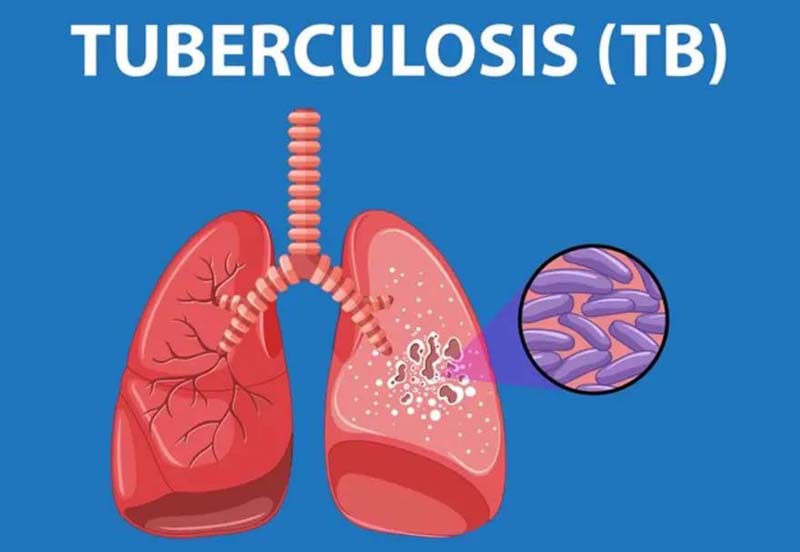Tarun Chugh
Prime Minister Narendra Modi has made a fervent appeal to eliminate tuberculosis (TB) from India, sparking a countrywide initiative to tackle the disease. Under his guidance, the nation has embraced a groundbreaking and comprehensive TB elimination strategy, leading to substantial advancements in prevention, diagnosis, and treatment. Over the years, India has initiated numerous pioneering programs that have not only accelerated TB control but also positioned the country as a global frontrunner in this fight.
Recent statistics from the WHO Global TB Report 2024 indicate that India achieved an impressive 17.7% reduction in TB incidence between 2015 and 2023, significantly outpacing global averages. In particular, in 2023, the country diagnosed over 25.1 lakh TB patients, increasing treatment coverage from 59% in 2015 to an outstanding 85% in 2023. This remarkable progress reflects the government’s relentless commitment to implement comprehensive and innovative strategies.
In a historic move to address one of public health’s most enduring challenges, Union Minister for Health and Family Welfare Jagat Prakash Nadda has inaugurated a 100-day focused campaign against tuberculosis (TB). The initiative, which spans 347 high TB burden districts, aims to enhance patient detection, reduce diagnostic delays, and improve treatment outcomes. By leveraging cutting-edge medical technologies and a robust healthcare system, the campaign underscores the government’s resolve to eliminate TB and enhance health outcomes, particularly for vulnerable populations.
Launched on December 7, this initiative seeks collaboration among district officials, community leaders, and civil society groups. Inspired by the vision of the Prime Minister, the campaign emphasizes boosting outreach initiatives and reinforcing public health services to tackle healthcare inequalities. By addressing gaps in access and care, India moves closer to its aspiration of a TB-free future. A critical component of the TB elimination strategy is the nutritional support provided to patients through the Nikshay Poshan Yojana (NPY). Since its launch in 2018, NPY has allocated over ` 3295 crore in direct benefit transfers, reaching 1.16 crore patients. The monthly nutritional allowance, which has recently increased from ` 500 to ` 1,000, reflects the government’s dedication to holistic patient care.
Under the Pradhan Mantri TB Mukt Bharat Abhiyaan (PMTBMBA), the government has cultivated partnerships among citizens, healthcare professionals, and organizations to fight TB. This program has not only addressed nutritional needs but also fostered community-led initiatives, with over 1.75 lakh Nikshay Mitras providing 21 lakh food packages to patients nationwide, supporting their recovery with dignity.
To support treatment efforts, India has significantly expanded its diagnostic capabilities. From only a few hundred molecular diagnostic machines in 2015, the country now has 8,293 machines in various districts, drastically reducing the time needed for TB diagnosis. This notable advancement has been crucial in identifying drug-resistant TB strains, facilitating timely and effective treatments.
India’s ‘Make in India’ initiative has driven the creation of cost-effective, domestic diagnostic tools for TB, including molecular tests now approved by the WHO. These innovations have contributed to lower diagnostic costs and improved treatment efficiencies, cementing India’s status as a leader in global TB research.
In recent years, the introduction of new TB medications such as Bedaquiline and Delamanid has transformed the treatment landscape for drug-resistant cases. New breakthroughs, including a shorter six-month treatment regimen for multidrug-resistant TB utilizing BPaL (Bedaquiline, Pretomanid, and Linezolid), have further improved recovery rates. These advancements represent India’s commitment to delivering world-class healthcare to its population.
The country’s robust research environment, spearheaded by institutions like the Indian Council of Medical Research (ICMR), continues to forge novel diagnostic and therapeutic tools. Ongoing research focuses on developing affordable point-of-care diagnostics to ensure healthcare services reach the last mile.
India’s steadfast efforts to eliminate TB serve as a shining example of what can be achieved through collective action. From innovations in diagnostic techniques to the unwavering support offered by communities, every participant has played a crucial role in this endeavor. The aim to eliminate TB reflects not only ambition but also a deep commitment to accountability.
As the 100-day campaign kicks off, it invites all citizens to join the fight against TB. Let us come together to ensure each patient receives the care they need, striving to make TB a thing of the past.
(The writer is the National General Secretary of the Bharatiya Janata Party).


Leave a Reply